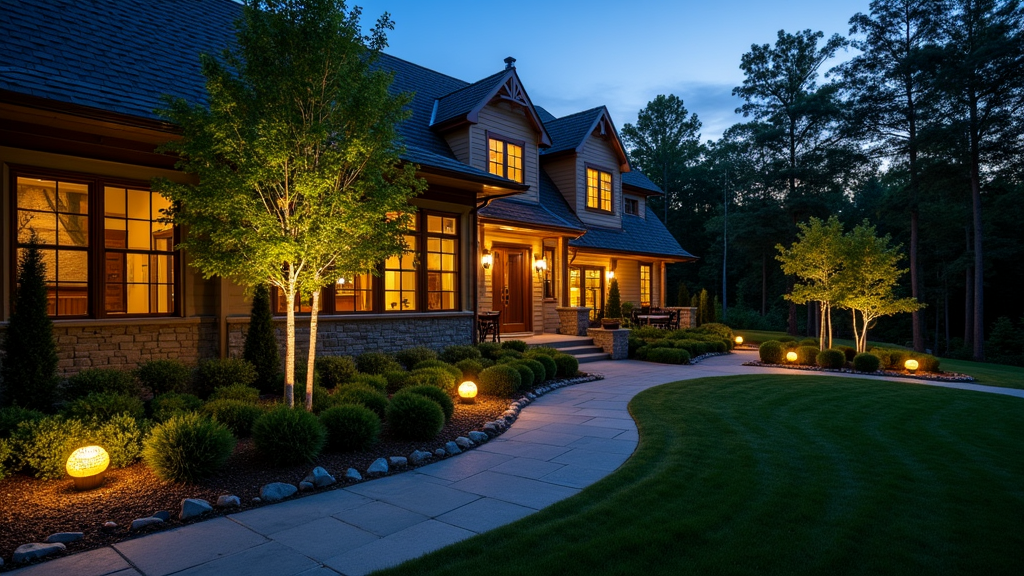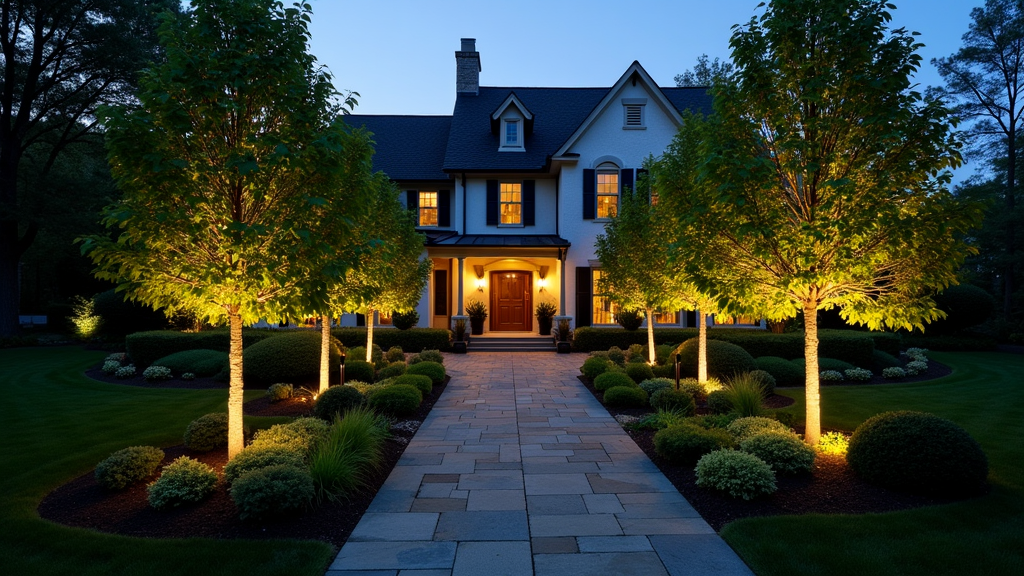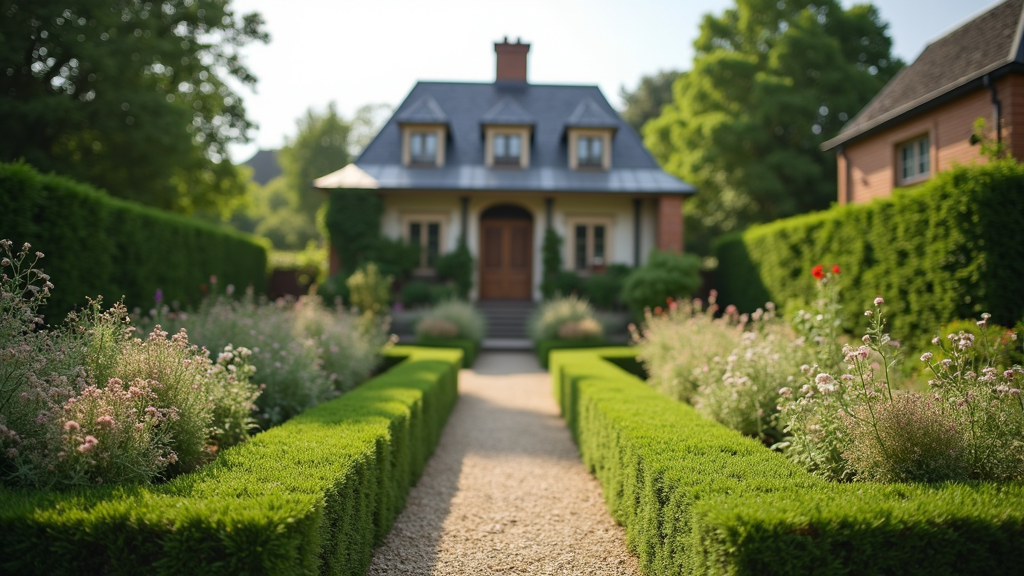Introduction
When you think about enhancing the beauty and functionality of your outdoor space, timing can be everything. In Greensboro, NC, the climate and seasonal changes play a significant role in determining the best times for landscaping. Whether you're considering planting perennials, creating a garden oasis, or simply updating your lawn, understanding the nuances of landscaping in Greensboro will help you maximize your efforts. This guide dives deep into The Best Times of Year to Landscape Your Home in Greensboro, exploring optimal seasons, specific tasks to tackle, and tips to ensure your landscape flourishes year-round.
Understanding the Climate in Greensboro
Greensboro’s Unique Climate
Greensboro is known for its temperate climate which features four distinct seasons. Summers tend to be hot and humid, while winters can get chilly with occasional snowfall. Understanding this climate is fundamental when planning any landscaping project.
Seasonal Challenges
From frost dates to rainfall patterns, each season brings its own set of challenges for landscaping in Greensboro. For instance:
- Spring: While it's perfect for planting bulbs and flowers, late frosts can threaten young plants. Summer: The heat can stress certain plants; thus, proper watering techniques are crucial. Fall: Ideal for planting trees and shrubs but beware of early cold snaps. Winter: Though not an active growing season, it's a great time for planning future projects.
Optimal Weather Conditions
Typically, the weather from March through October offers the best conditions for most landscaping activities. Knowing these details helps homeowners decide when to undertake their projects.
The Best Times of Year to Landscape Your Home in Greensboro
Spring: A Season of Renewal
Benefits of Spring Landscaping
Spring is often considered the prime time for landscaping in Greensboro. As temperatures rise and daylight increases, plants awaken from their winter slumber.
Ideal Plants for Spring Planting
Consider planting:
- Bulbs such as tulips and daffodils Perennials like hostas and daylilies Annuals such as petunias and marigolds
Preparing Your Garden Beds
Before diving into planting, take time to prepare your garden beds by:

Summer: Thriving Amidst the Heat
Watering Techniques for Summer Landscaping
During summer months when temperatures soar in Greensboro:
- Water early morning or late evening to minimize evaporation. Consider drip irrigation systems for efficient watering.
Maintenance Tasks During Summer
Keep up http://shanewjpi365.theburnward.com/crafting-a-zen-garden-elements-of-tranquil-landscape-design with weeding and fertilization during summer months. Regularly check plants for pests or diseases as they tend to thrive during warm conditions.
Fall: Perfecting Your Landscape Design
Why Fall is Ideal for Landscaping Projects
Fall brings cooler temperatures that are perfect for transplanting trees and shrubs without stressing them out too much.
Planting Trees During Fall
Certain species thrive when planted in fall due to established root systems before winter sets in. Some ideal choices include:
- Oak trees Maple trees Dogwoods
Winter: Planning Ahead
The Importance of Winter Preparation
While it might seem counterintuitive to plant during winter months, this period is perfect for planning your upcoming projects.
Winter Landscaping Activities
Activities during winter should focus on preparation rather than planting:
Sketch out designs Research plant species suited for spring planting Assess existing landscapesMonthly Breakdown of Landscaping Activities in Greensboro
January: Planning Phase
- Assess previous year’s landscaping efforts.
February: Early Preparations
- Start ordering seeds and bulbs; prepare garden tools.
March: Spring Awakening
- Begin planting cool-season crops like peas.
April: Peak Planting Time
- Plant annuals and perennials; start mulching gardens.
May: Managing Growth
- Focus on irrigation systems as growth begins accelerating.
June: Mid-Summer Maintenance
- Prune flowering shrubs after blooming; control pests.
July: Hot Weather Care
- Adjust watering schedules based on rainfall; install shade cover if necessary.
August: Preparing for Fall
- Start thinking about fall bulb planting; clean up gardens.
September: Autumn Planting Begins
- Plant cool-weather vegetables like lettuce; divide perennials.
October: Final Touches Before Winter
- Mulch around plants; remove any dead foliage or weeds.
November: Wrapping Up Projects
- Prepare beds with compost; plan next year’s landscape design.
December: Reflecting on Progress
- Review what worked well; think about new ideas!
FAQs About Landscaping in Greensboro
1. When is the best time to plant grass in Greensboro?
The ideal time to plant grass seed is early spring (March-April) or early fall (September). These periods allow seeds ample time to establish before extreme weather hits.
2. What are some drought-resistant plants suitable for Greensboro?
Plants such as lavender, sedum, and ornamental grasses thrive well under drought conditions while still adding charm to your landscape.
3. How can I improve my soil quality before landscaping?
To enhance soil quality, consider adding organic matter like compost or mulch. Conduct a soil test to determine nutrient needs before proceeding with improvements!
4. Are there local resources available for gardening tips?
Absolutely! The North Carolina Cooperative Extension Service provides resources tailored specifically toward local gardening challenges!


5. How often should I water my newly planted shrubs?
Newly planted shrubs typically need watering once every few days until established—aiming for deep watering at least once a week thereafter!
6. Can I landscape during winter months?
While not ideal for planting new flora due to harsh conditions—winter is great time spent planning future layouts!
Conclusion
Landscaping isn’t just about beautifying your home—it’s an expression of creativity that connects you with nature right outside your door! By understanding The Best Times of Year to Landscape Your Home in Greensboro, you’ll become equipped with knowledge essential not only for successful gardening but also fostering that flourishing outdoor sanctuary you've always dreamed about! So roll up those sleeves because it’s time to transform your backyard into something magical!